In the .NET world, you need to know quite some things.
- When a class doens't have a constructor, the compiler adds a default public one without any parameters.
That means that when you have the following class:
public class Person
{
public int Age
{
get { return 10; }
}
}
It can be instantiated like:
class Program
{
static void Main(string[] args)
{
var person = new Person();
Console.WriteLine(person.Age);
}
}
This would produce the following output:

- As soon as you create a constructor, the default public, parameterless one is not added by the compiler.
This means that when you change your person class to the following:
public class Person
{
private Person() { }
public int Age
{
get { return 10; }
}
}
You're not able to instantiate the class using the new() keyword:
var person = new Person();
This would result in a compile error:

- Through reflection, you can construct an object event if the constructor is private and/or does contain parameters.
That being said, your question is unclear because you would never need to create a constructor at runtime, because of the following:
- A class without a constructor has a constructor added by the compiler and can be constructed through reflection.
- A class with a constructor can be constructed through reflection.
- A class with an in-accesible constructed can be constructed through reflection.
Now, let's see how to construct classes using reflection using the 3 scenario's above:
You have a class without a constructor.
public class Person
{
public int Age
{
get { return 10; }
}
}
Your instance can be created like:
var instance = (Person)Activator.CreateInstance(typeof(Person));
You have a class with a public constructor
public class Person
{
public Person() { }
public int Age
{
get { return 10; }
}
}
Your instance can be created just in the same way as above, nothing special is needed.
var instance = (Person)Activator.CreateInstance(typeof(Person));
You have a class with a private constructor
public class Person
{
private Person() { }
public int Age
{
get { return 10; }
}
}
Now your instance cannot be created in such an easy way.
First, you need to get your ConstructorInfo:
ConstructorInfo c = typeof(Person).GetConstructor(BindingFlags.NonPublic | BindingFlags.Instance, null, new Type[] { }, null);
With the code above, your requesting information about the constructors which are not public (BindingFlags.NonPublic).
After you have retrieved it, you can construct your object like:
var instance = (Person)c.Invoke(new object[] { });
Let's make it a bit more difficult with the following scenario's:
You have a class with a public constructor that accepts parameters:
public class Person
{
public Person(int age)
{
Age = age;
}
public readonly int Age;
}
The creation is still quite easy:
var instance = (Person)Activator.CreateInstance(typeof(Person), 15);
You just need to pass all your parameters in the same way as they are defined in your constructor.
You have a class with a private constructor that accepts parameters:
public class Person
{
public Person(int age)
{
Age = age;
}
public readonly int Age;
}
Again, we'll need the ConstructorInfo object, but now we need to specify with types of parameters are constructor is accepting. In the example above, this is an integer:
ConstructorInfo c = typeof(Person).GetConstructor(BindingFlags.NonPublic | BindingFlags.Instance, null, new[] { typeof(int) }, null);
Now, you can create an object and as a last parameter you specify all the arguments to construct your object.
var instance = (Person)c.Invoke(new object[] { 15 });
So, this was a very long post about reflection but I hope that I mde some things clear.
At least, it should be clear right now why you don't need to add a constructor at runtime in able to invoke an object.

